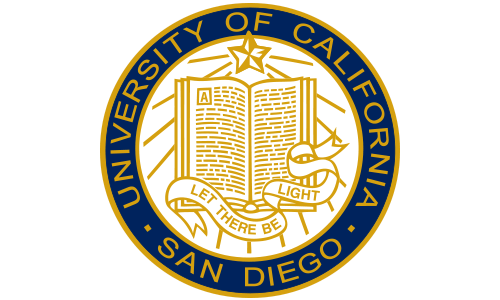Innovative technology and rigorous empirical research bring policy solutions to developing countries
For too long, debates in development policy have been based on ideology or heuristic measures of what works. By making development research more scientific, we can debunk ineffective strategies and deliver real, practical solutions to those in need. The Policy Design and Evaluation Lab (PDEL) of the School of Global Policy and Strategy (GPS), at UC San Diego, combines rigorous empirical research with novel technology to design policies and programs that alleviate poverty; promote health, welfare, and security; and enhance accountability. Led by Drs. Eli Berman, Gordon Hanson, and Craig McIntosh, PDEL is currently working to improve African food markets by establishing digital trading platforms accessible by phone SMS from rural Africa. In a large-scale randomized controlled trial, this digital trading platform will allow farmers to post grains and buyers to post prices by texting. A backend matching algorithm will bring supply and demand together where regional food markets are largely disconnected due to lack of shared information.
The kind of research and innovation being developed at PDEL is made possible through extensive and robust collaborations across the campus, the nation, and the globe. PDEL has catalyzed an interdisciplinary team consisting of prominent researchers from multiple universities, the UC San Diego division of Calit2, and computer scientists in Africa. This intersection of rigorous research and innovative technology is at the core of what PDEL does, bringing together social scientists, computer scientists, and public health practitioners at the intersection of technology and socio-economic reformation. A second research focus at PDEL is providing tools for mobile election monitoring, including work in Afghanistan, Kenya, Uganda, and South Africa. Using SMS-enabled data loops, voters can post the results at their local polling station into a centralized posting website via mobile phone. In so doing, PDEL brings together social scientists and computer scientists to facilitate data collection by building sophisticated tools with limited resources and apply rigorous statistical methods to the study of policies aimed at improving the lives of the poor and the marginalized.
Current research includes:
- High-Tech Trading Platform for Smallholder Farmers: Led by Dr. Craig McIntosh, researchers at PDEL are combining high-tech server-based tools with simple text-based SMS messaging to build novel trading platforms for grain markets in Uganda. They are fielding a randomized trial covering 12% of the surface area of the country that brings together a kind of Ebay for buying and selling grain with a suite of software tools developed at UC San Diego to measure and deepen markets for basic grains. The goal of the project is to improve prices received by farmers and enhance food security by promoting large-scale trading in grain.
- Mobile Money Revolution of the Developing World: With dumb phone penetration in Africa now at 80%, the mobile phone has become a critical means of offering a suite of financial services to previously marginalized populations via SMS. PDEL projects are developing innovative platforms for cash transfers, savings services, agricultural trading and the payment of school fees using mobile money, an SMS banking system that is opening an incredible new gateway to reach millions of poor households. With mobile money systemized in place, people will be able to set up mobile money accounts and text the platform with a recipient number and quantity being transferred, at which point the recipient will receive a text notification and can then take the phone to cash the money out at local village agents. Similar to direct deposit being used in America, mobile money will revolutionize people’s lives, facilitating a myriad of services like employ payment and saving in places without a banking infrastructure, and signify both a technological and an empirical revolution.
- Environment and Remote Sensing: Researchers at PDEL are combining ground monitoring with remote sensing data to understand big-picture social problems. Projects use satellite data and mobile phones to provide an accurate count of the population in Mogadishu, as well as to gather data on hard-to-track populations such as refugees. Another project mobile phone-based data to ground-truth satellite-based estimates of pollution, allowing for the improvement of algorithms that provide universal monitoring of hazardous emissions.
- Role of Technology in the Classroom: To measure the effectiveness of incentive-based policies, researchers at PDEL are conducting a number of different projects looking at the use of financial incentives like teacher performance pay. Researchers are also trying to understand the effect of incentives on students, and using technology to monitor children’s performance in structural award systems. Such studies will provide opportunities for rethinking children’s attention and energy problems.
Bio
The Policy Design and Evaluation Lab (PDEL) is an international focal point for rigorous empirical research on the interplay of public policy, technology, and economic development. The mission is to combine advanced social science methodology with the power of information technology to design policies and programs that alleviate poverty; promote health, welfare, and security; and enhance accountability.
Directors
Eli Berman, Department of Economics
Dr. Eli Berman is a professor of economics at UC San Diego and a research associate at the National Bureau of Economic Research. He is also currently Research Director for International Security Studies at the Institute for Global Conflict and Cooperation (IGCC).
Gordon Hanson, School of Global Policy & Strategy
Dr. Hanson holds the Pacific Economic Cooperation Chair in International Economic Relations at UC San Diego, where he is director of the Center on Emerging and Pacific Economies and has faculty positions in the School of Global Policy and Strategy and the Department of Economics. He received his Ph.D. from Massachusetts Institute for Technology.
Craig McIntosh, School of Global Policy & Strategy
Dr. Craig McIntosh is a Professor of Economics at the School of Global Policy and Strategy, UC San Diego. He received his Ph.D. from the University of California, Berkeley in Agriculture and Resource Economics. Dr. McIntosh is a development economist whose work focuses on program evaluation. His main research interest is the design of institutions which promote the provision of financial services to micro-entrepreneurs. He has conducted field evaluations of innovative anti-poverty policies in Mexico, Guatemala, Malawi, Rwanda, Uganda, and Tanzania. He is currently working on research projects investigating how to boost savings among the poor, on whether schooling can be used as a tool to fight HIV/AIDS in Sub-Saharan Africa, and on mechanisms to improve the long-term viability of Fair Trade markets.
“Having lived in Africa as an exchange student as a teenager, I have always wanted to understand how policy can effectively provide opportunities for the poor. The explosion of rigorous research methods in the social sciences provide an exciting way to make the search for better policies faster and more effective. My work combines the use of new technologies with careful experimentation to try to understand how to make markets work for the poor.”
Affiliated Faculty
Claire Adida, Department of Political Science
James Andreoni, Department of Economics
Jennifer Burney, GPS
Christina Chambers, Department of Medicine
Ganz Chockalingham, Calit2
Jesse Driscoll, GPS
Karen Ferree, Department of Political Science
Nathan Fletcher, Department of Political Science
Richard Garfein, Department of Medicine
Ayelet Gneezy, Rady School of Management
Uri Gneezy, Rady School of Management
David Lagakos, Department of Economics
Albert Lin, Calit2
Elizabeth Lyons, GPS
Gordon McCord, GPS
David Moore, Department of Psychiatry
Marc Muendler, Department of Economics
Simeon Nichter, Department of Political Science
Anita Raj, Department of Medicine
Molly Roberts, Department of Political Science
Jay Silverman, Department of Medicine
Steffanie Strathdee, Department of Medicine
Junjie Zhang, GPS
For more information, visit http://pdel.ucsd.edu/
In the News
Los Angeles Times


